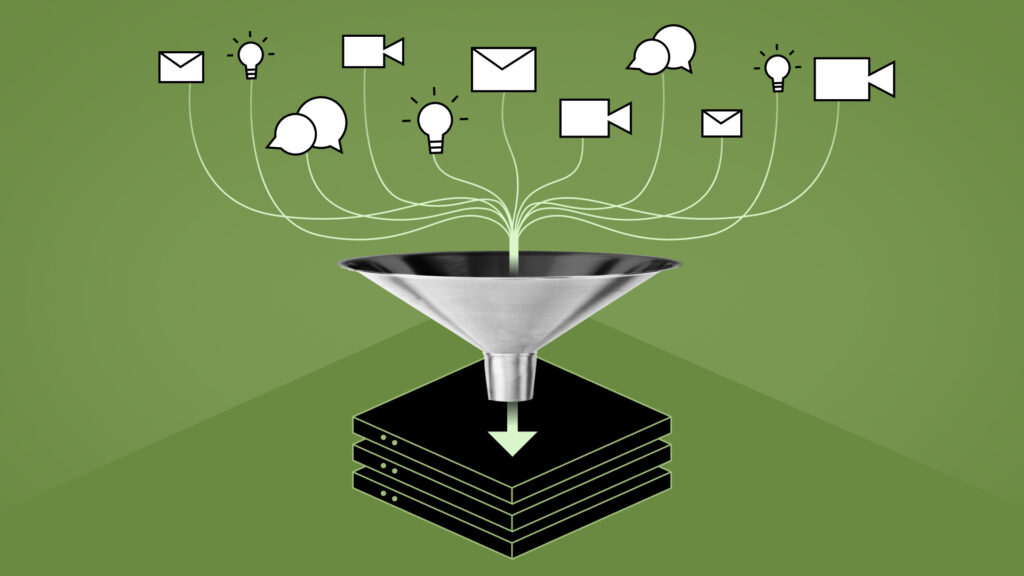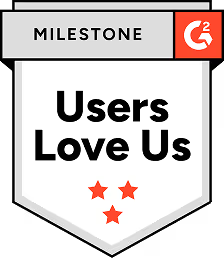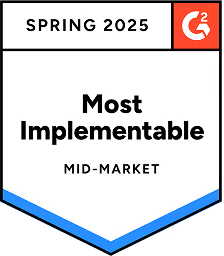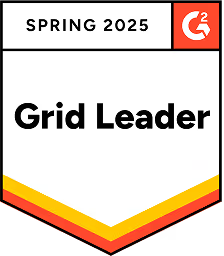AI in sales 101: Everything you need to know

TL;DR
In the ever-evolving sales landscape, artificial intelligence (AI) is no longer a futuristic concept: it's a powerful tool that's reshaping the way businesses approach sales.
In this article, we'll do a deep dive into everything you need to know about AI and its many applications within your go-to-market (GTM) strategies. We'll also do some important level-setting about what AI can (and can’t) do for sales teams, as well as share our answer to the question that's on everyone's mind: will AI replace salespeople entirely?
Key takeaways from the article:
- A slow, but steady evolution: AI's come a long way, evolving from narrow, task-specific solutions to sophisticated models capable of handling a wide range of sales activities.
- Wealth of options: The AI toolbox for sales teams is vast and growing, offering solutions for a range of sales processes, including predictive analytics, sentiment analysis, lead generation, and personalized content creation.
- Benefits for everyone: AI can be leveraged across various GTM functions — from customer success and enablement to marketing, operations, and prospecting — streamlining workflows and empowering data-driven decision-making.
- The "human+AI" relationship: While AI excels at a lot of different tasks, it shouldn't be a replacement for human talent. The true power lies in a symbiotic human+AI relationship that augments your team's uniquely human abilities.
- Proper implementation: Embracing AI requires a thoughtful change management approach, reskilling personnel, and redefining roles and responsibilities to ensure your team maximizes the technology's potential.
In our line of work, change is constant, but artificial intelligence’s (AI) swift adoption represents more than change: it’s a fundamental shift in how we do business. Just as CRM software revolutionized sales in the 2000s, AI is now recalibrating our industry's DNA, prompting a deep, tech-driven evolution that’s pushing sellers to sell the way buyers actually buy.
AI is no longer a futuristic concept; it's a powerful tool that's reshaping how businesses approach sales, offering unprecedented opportunities for efficiency, personalization, and growth. But in order to leverage it properly, it’s important that you understand the full story arc of how this technology started, where it’s been, and where it’s going.
In this article, we'll explore the evolution of AI in sales, the types of AI tools available, and how to leverage AI in your sales strategy. We’ll also do some level-setting toward the end about what AI can (and can't do) for sales teams.
The evolution of AI in sales
The application of AI in sales has been a gradual journey, with the technology evolving from narrow, task-specific solutions to more sophisticated, generalized models capable of handling a wide range of sales activities.
Here's a brief timeline of the evolution of AI’s use in the sales industry:
- Early 2000s: The first applications of AI in a sales context focused on specific tasks like lead scoring and pipeline management. These were rule-based systems that relied on predefined logic and lacked the ability to learn and adapt.
- Late 2000s: Machine learning algorithms began to be incorporated into sales tools, enabling predictive analytics and more accurate lead scoring based on historical data.
- Early 2010s: Natural language processing (NLP) and sentiment analysis capabilities were introduced, allowing AI systems to understand and analyze customer interactions, such as emails and chat conversations.
- Mid-2010s: AI-powered virtual assistants and chatbots gained traction, enabling sales teams to automate routine inquiries and provide basic customer support.
- Late 2010s: Deep learning and neural networks became more prevalent, leading to the development of conversational AI and more advanced virtual assistants capable of engaging in human-like dialogues.
- Early 2020s: Generative AI (genAI) models — like OpenAI’s GPT-3 — emerged, capable of generating human-like text, images, and other content. This opened up new possibilities for creating personalized sales content at scale.
- Present Day: The introduction of advanced genAI models — such as OpenAI’s GPT-4 and Anthropic’s Claude — paved the way for AI Sales Agents to emerge. This technology can automate the entire prospecting process — from lead generation and prospect research to initial outreach and engagement through automated email, social, and power dialing capabilities. These AI-powered Agents can consolidate all the tasks traditionally involved in prospecting into one tool rather than having to spread them out across 5+ platforms.
As AI continues to advance, we can expect to see even more sophisticated applications in sales, such as AI-powered negotiation assistants and real-time sales coaching based on conversation analysis.
Types of AI tools for sales teams
Over the past few years, there’s been a massive influx in the number of AI-powered tools available to sales teams – so much so that it’s almost impossible to keep track of it all these days. That said, if you’re serious about leveraging AI for your own team, it’s important that you understand all the different “flavors” that this tech comes in so you can ensure you’re getting the right tool or platform for your team’s specific needs.
Here are some of the most common types of AI tools that are available right now.
- Predictive analytics: Knowledge is power, and predictive analytics tools harness the might of AI to turn raw data into actionable insights. By analyzing customer behavior, purchase histories, and market trends, these tools can identify the most promising leads and predict their likelihood of conversion, ensuring sales efforts are focused on the low-hanging fruit.
- Sentiment analysis: The ability to read between the lines is invaluable in sales, and sentiment analysis tools can help you enhance that superpower. These platforms can analyze customer interactions — from emails to social media posts and chat conversations — to gauge preferences, sentiments, and pain points; this allows sales teams to tailor their approach and strike the right chord.
- Lead generation & segmentation: Finding the right prospects is half the battle, and AI lead generation platforms can act as invaluable allies in this fight. These solutions can identify and target potential customers based on specific criteria, ensuring that sales teams are always knocking on the most relevant doors.
- Personalized content generation: There are a number of genAI platforms out there that can generate entirely new content like text, audio, images, or graphics; they do this by using techniques like machine learning and neural networks to uncover relationships and patterns from massive datasets. This capability empowers businesses to craft highly contextual and personalized content – from email campaigns and sales scripts to graphics and entire sales decks – that captivates audiences and drives engagement.
- Sales automation: Repetitive tasks are the kryptonite of sales teams, but there are a number of AI-driven automation tools out there that can handle the heavy lifting. From data entry and lead nurturing to follow-up emails, these solutions can automate the mundane, allowing sales reps to concentrate on higher-value activities that drive real results.
- Performance monitoring & coaching: Continuous improvement is the key to success, and AI performance monitoring tools provide the insights that sales teams of all shapes and sizes need to level up. By analyzing prospect and/or customer conversations, identifying areas for growth, and offering personalized coaching recommendations, these solutions can enable managers to provide their reps with the feedback and insights they need to enhance their skills and overall performance.
AI-powered platforms are poised to revolutionize every aspect of the sales process. Needless to say, it's important for sales teams to jump on the “AI bandwagon” now so they can start to unlock the full potential of these powerful solutions.
How to use AI in your go-to-market strategy
Now that you know what kinds of tasks and capabilities that genAI can handle, let’s take a look at how this technology can be used to support the different parts of a go-to-market (GTM) strategy. Here's how different teams can leverage the immense power of AI sales platforms to streamline — or even fully automate — their workflows.
Customer success
In the world of customer success teams, AI can be used to do things like:
- Automatically route support cases to the right rep based on issue complexity, product/service line, language, skillset, and other key attributes.
- Deploy AI-powered chatbots and virtual agents to provide instant 24/7 support, answer common questions, triage issues, and seamlessly escalate to human agents when needed.
- Analyze product / service usage patterns, sentiment, health scores, and other data to predict churn risks, expansion opportunities, and recommended actions.
- Conduct intelligent data mining to surface relevant support articles, documentation, and self-help resources based on the specific customer inquiry.
- Analyze speech and interaction data, along with sentiment tracking, to measure customer satisfaction, agent effectiveness, and identify areas for improvement.
- Automate the generation of emails, surveys, health scorecards, upsell/cross-sell campaigns, renewals, and other customer touchpoints.
Marketing
In the world of marketing, AI can be used to do things like:
- Continually analyze audience data, social conversations, and behavioral signals to surface critical market insights on the competitive landscape, market trends, customer needs, and more.
- Supercharge account-based marketing (ABM) by analyzing vast amounts of data in order to identify ideal target accounts, personalize outreach at scale, and coordinate multi-touch campaigns across various channels. This level of precision and coordination was previously impossible without significant manual effort.
- Provide social listening and conversational intelligence insights to help identify emerging product needs and customer pain points, as well as use psychographic and behavioral modeling to build richer unified customer profiles.
- Autonomously run A/B tests, adjust ad creative and targeting, and reallocate budgets.
- Automate content production workflows with AI-assisted content creation, graphic design, and video generation, and dynamically personalize content at scale based on audience traits, habits, and interests.
- Forecast marketing ROI, pipeline contribution, revenue impact, and tie true business value back to initiatives.
Operations (revenue / sales)
In the world of salesOps and revOps, AI can be used to do things like:
- Accurately forecast pipeline, bookings, revenue, staffing needs, territory design, quota planning, and other metrics.
- Automate and optimize administrative processes like renewals, upsell/cross-sell, order management, contracting, and billing.
- Intelligent data cleansing, deduplication, and integration across CRM, CPQ, billing systems, and other sales tech platforms.
- Provide conversational intelligence insights to guide reps through consultative sales processes and maximize productivity.
- Unify and analyze data from various sources, enabling better forecasting, pipeline management, and resource allocation.
- Analyze granular performance data and prescribe intelligent next-best actions for reps, managers, and ops around deal pursuit and account management.
Prospecting
In the world of prospecting, AI can be used to do things like:
- Rapidly conduct 3x3 research and build comprehensive prospect profiles by extracting insights across news, social media, financials, org charts, web footprint, and more.
- Analyze your best customers and accounts in order to identify key attributes and build an ideal profile for hyper-targeted prospecting.
- Analyze data across multiple sources and accurately predict which leads are the “hottest” – or have the highest likelihood of converting into a sale.
- Continuously re-prioritize and segment your prospecting targets based on real-time analysis of multiple data streams like intent, engagement, ICP fit, and more.
- Real-time personalization of prospecting emails, cadences, call scripts, and other outreach tactics based on the unique prospect attributes.
- Power chatbots and AI sales assistants to qualify inbound leads, schedule meetings, answer FAQs, and provide a stellar prospect experience.
- Enhance intra-team collaboration and knowledge-sharing by analyzing individual rep performance, automatically sharing successful strategies, and even suggesting optimal pairings for joint sales calls. By centralizing insights and facilitating knowledge sharing, AI helps create a more cohesive and effective sales organization.
Sales enablement
In the world of sales enablement, AI can be used to do things like:
- Analyze sales scenarios, buyer personas, and existing content to surface the ideal enablement assets for any selling situation.
- Act as “virtual coaches” that can role-play with reps, provide real-time feedback, and recommend tailored coaching based on identified skills gaps.
- Dynamically personalize pitch decks, proposals, case studies and other enablement content based on the specific prospect/account.
- Implement AI-powered search capabilities so reps can quickly surface relevant enablement resources like product docs, competitor intel, objection handling advice, etc.
- Analyze rep calls and meetings, providing insights into successful tactics as well as areas for skill reinforcement through tailored coaching.
- Provide real-time coaching, call transcription, and sentiment analysis from cold calls.
Of course, AI is still an emerging frontier, so responsible deployment is critical. You'll need to thoughtfully evaluate use cases, address data privacy concerns, and find ways to help your teams embrace (rather than resist) these new capabilities. (As you can probably imagine, change management will play a huge role in this transition.)
But for teams who are willing to blaze that trail, the gains could be massive: accelerated deal cycles, higher win rates, streamlined operations, and – more importantly – increased bandwidth for your team to focus on the tasks that matter most: building trust and nurturing relationships with prospects and customers alike.
What AI can & can't do for sales teams
Though AI presents a ton of exciting opportunities to support and enhance the work your team’s doing, it’s also important to understand the limits of what this technology can and can’t do. While AI offers immense potential, it's not a set-it-and-forget-it magic bullet. There are still key roles only humans can fill.
So, let's go through what an AI sales sidekick is genuinely capable of versus where you'll still need those fleshy carbon-based salespeople leading the charge.
What AI can do
AI offers a ton of benefits for sales teams, including:
- Automating tedious, repetitive tasks (e.g., data entry, research, administrative work);
- Analyzing huge data sets to surface key insights and recommendations;
- Predicting outcomes and identifying the most promising opportunities;
- Dynamically personalizing content, messaging, and channel tactics;
- Providing real-time battlefield intelligence through conversational analytics; and,
- Continuously optimizing processes, pipelines, territories, and workflows.
What AI can't do
While AI is incredibly powerful, it's important to set realistic expectations. There are certain tasks and outcomes that AI can’t deliver, such as:
- Developing nuanced personal rapports and relationships with prospects and customers;
- Displaying deep emotional intelligence and human intuition;
- Truly understanding fuzzy, contextual communication patterns;
- Synthesizing disparate knowledge into breakthrough creative ideas;
- Providing subjective, experiential advice and mentorship; and,
- Self-motivating and self-adapting without human oversight.
The million-dollar question: Will AI replace salespeople?
As AI capabilities continue to advance, some sales pros are left understandably concerned that these intelligent systems will eventually phase out the human element entirely. Among all the excitement and hype around this technology, one resounding question keeps popping up: “Will AI automate salespeople out of existence?”
Our answer? Not a chance.
While AI offers powerful sales capabilities, its true value comes from complementing and elevating human efforts - not wholly replacing them. We believe wholeheartedly that the future of sales will involve a balanced human+AI symbiotic relationship, allowing both robotic and human talent to shine in the tasks and roles that they (respectively) do best.
Think: Batman partnering with a robotic utility belt, not abandoning Alfred altogether.
The sales process inherently involves a lot of highly repetitive, mundane, and automatable components that drain your team’s productivity: data entry, prospect research, administrative tasks (just to name a few). These are precisely the types of tasks that AI excels at. By offloading the robotic duties to…well...robots, your sales team can unlock superhuman potential never before seen.
Specifically, AI can help free up your SDRs time and bandwidth so they can hyper-focus on the high-impact activities where human skills are indispensable: navigating complex relationships, understanding nuanced prospect needs, and delivering tailored experiences to customers. Leveraging AI empowers your sellers to be strategic advisors rather than cloud-based order-takers.
Of course, maximizing AI's impact requires a thoughtful change management approach - reskilling personnel, redefining roles and responsibilities. It's about enhancing human abilities, not replacing them outright. When done right, AI isn't – and shouldn’t be – viewed as a threat to human talent; instead, it should be viewed as a force multiplier that enhances your team’s most uniquely human abilities. With AI running in the background, your sellers can transform from merely excellent to extraordinary by melding hustle and creativity with machine intelligence.
So ready the AI utility belt and prepare your team to operate at a new level. With robotic helpers handling grunt work, your sellers can soar to superhuman heights. Just be sure to leave some commission upside for the non-AI assisted mere mortals.
Final thoughts
The integration of AI in sales is a game-changer, offering unprecedented opportunities for efficiency, personalization, and growth. As AI technologies continue to evolve, sales teams that embrace these tools will gain a competitive edge, enabling them to:
- Streamline their processes and automate repetitive tasks;
- Deliver personalized, human-like sales experiences at scale;
- Gain data-driven insights for better decision-making; and,
- Optimize their performance and focus on high-value activities.
However, it's crucial to remember that AI is a tool, not a complete replacement for human talent. The key is to strike the right balance, leveraging AI to augment and empower your sales team, while ensuring that human expertise and relationship-building remain at the core of your sales strategy.
Want to see how AI can automate your entire prospecting motion?
Schedule a demo today to see our AI Sales Agents in action!
FAQs
Read more posts
View all BlogsNeed more help?
If you still have questions, make sure to check out our Help Center: there, you'll find all the tips & advice you'll need to get your team up & running with Regie.ai.









